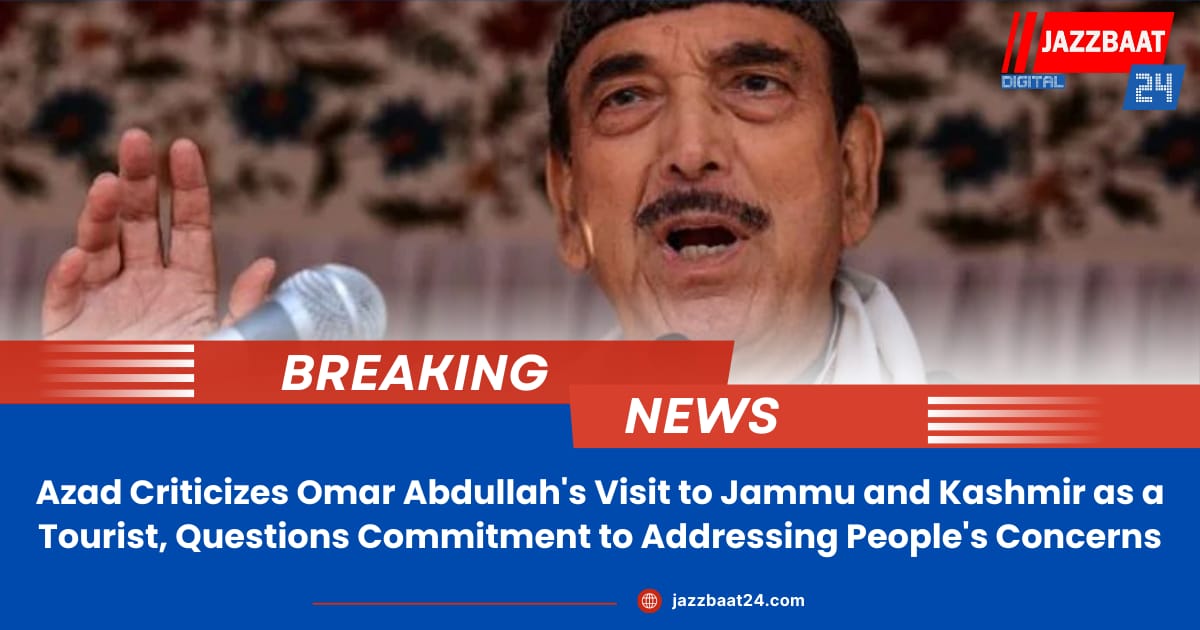Senior Congress leader Ghulam Nabi Azad has raised concerns over former Jammu and Kashmir Chief Minister Omar Abdullah's recent visit to the region, alleging that Abdullah's approach resembled that of a tourist rather than a leader responsive to the concerns of the local populace. Azad's remarks highlight growing tensions within the political landscape of the region, particularly amidst calls for greater representation and engagement with grassroots issues.
During a public address, Azad criticized Abdullah for purportedly displaying apathy towards the pressing issues facing the people of Jammu and Kashmir. He questioned Abdullah's commitment to addressing the region's socio-economic challenges, suggesting that his visit lacked substantive engagement with local communities and their grievances.
Azad's comments come against the backdrop of ongoing debates regarding the role of mainstream political parties in Jammu and Kashmir following the abrogation of Article 370 and the subsequent reorganization of the region into union territories. The political landscape has witnessed a shift with new alliances and emerging voices seeking to assert themselves amidst the changing dynamics.
Abdullah, a prominent figure in Kashmiri politics and leader of the National Conference party, has been vocal in his opposition to the central government's actions regarding the region's status. However, Azad's critique underscores broader concerns about the effectiveness of established political leaders in addressing the evolving needs and aspirations of the people they represent.
The exchange between Azad and Abdullah reflects underlying tensions within the political spectrum of Jammu and Kashmir, as various stakeholders navigate the complexities of governance and representation in the post-Article 370 era. As the region continues to grapple with socio-political challenges and aspirations for self-determination, the role of political leadership in addressing grassroots concerns remains a subject of intense scrutiny and debate.
Azad's critique serves as a reminder of the expectations placed on political representatives to actively engage with and respond to the needs of their constituents, particularly in regions undergoing significant transitions. The exchange also underscores the importance of constructive dialogue and accountability in fostering inclusive governance and addressing the diverse aspirations of the people of Jammu and Kashmir.
In conclusion, Azad's remarks regarding Omar Abdullah's visit to Jammu and Kashmir underscore broader questions about political representation and responsiveness in the region. As stakeholders navigate the complexities of post-Article 370 politics, the onus remains on political leaders to prioritize the concerns of the people they serve and actively engage in dialogue to address pressing socio-economic challenges.
